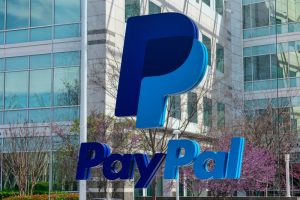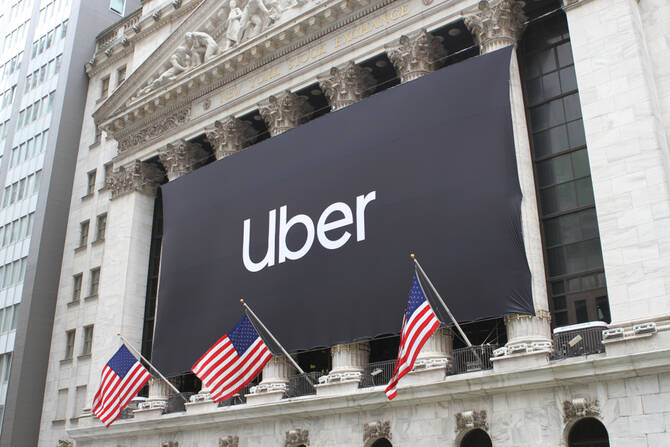
RIYADH: Uber Technologies Inc. has emerged as the Saudi Public Investment Fund’s largest single holding by market value in its US portfolio, valued at $5.31 billion for an unchanged stake of 72.84 million shares.
This change reflected a market-driven increase in Uber’s stock price. In contrast, Lucid Group Inc., in which PIF continues to hold 1.77 billion shares, saw its market value decline to $4.29 billion from over $5.3 billion at the end of 2024.
According to the fund’s latest 13F filing with the US Securities and Exchange Commission, PIF’s US equity portfolio fell to $25.55 billion by March-end, down from $26.77 billion the preceding quarter, amid valuation and position changes.
The shift was primarily driven by market-based valuation changes, rather than a significant reallocation of assets, with the majority of holdings remaining unchanged in terms of share count.
Not all holdings listed in the filing are traditional equity shares. The fund also disclosed positions in call options for several US tech giants, including Amazon, Adobe, and Microsoft, as well as Alphabet, and Meta Platforms.
These derivatives grant the right — but not the obligation — to purchase the underlying stocks and are distinct from direct share ownership. The figures disclosed, such as 961,300 shares tied to call options on Adobe Inc. and 1.2 million shares via Alphabet Inc. options, represent the total number of underlying shares the options control.
These positions indicate the PIF’s strategic use of capital-light exposure to high-value tech equities.
While many core holdings remained unchanged, PIF increased its exposure in certain stocks. The fund nearly doubled its position in PayPal Holdings, from 1.76 million to 3.67 million shares, and added to its stakes in Amazon, Zoetis, Micron Technology, and Lam Research.

Debt issuance meets strategic shift
In parallel with its global positioning, PIF continues to tap capital markets to finance Vision 2030 initiatives.
According to a May report by Global SWF, the fund raised $1.25 billion through a seven-year sukuk — its second debt issuance of the year — tightening pricing from 145 basis points over US Treasuries to just 110 basis points after attracting over $8.2 billion in orders.
The sukuk, issued under the Trust Certificate Issuance Programme as Sukuk Al-Wakala, signals robust investor confidence and PIF’s expanding sophistication in Islamic finance.
However, the issuance comes amid an internal recalibration.
According to the report, citing Arabian Gulf Business Insight, PIF is reportedly cutting 2025 budgets across its portfolio by at least 20 percent, with some flagship giga-projects facing up to 60 percent reduction. Developments such as NEOM and the Red Sea Project have seen timeline adjustments and contract revisions as the fund prioritizes capital discipline.
This strategic shift reflects broader fiscal pressures. Oil revenues remain below target, and Brent oil forecasts for 2025 have been revised downward to $66 per barrel, far below the $90 per barrel fiscal breakeven.
Meanwhile, Aramco’s dividend payout is expected to fall to $85.4 billion, reducing government inflows. Combined with a rising fiscal and trade deficit, borrowing has become a necessary tool for PIF to maintain project continuity.
Despite this, the fund is doubling down on investor engagement, according to Global SWF. It has raised $5.25 billion in debt already in 2025 through various instruments, including a $4 billion bond in January and a $7 billion Murabaha credit facility. These steps are allowing the fund to selectively advance high-priority ventures while reassessing broader allocations.
A new era of capital discipline

PIF’s transformation signals a new phase of financial pragmatism, according to Global SWF. Rather than scaling back, the fund is reallocating, favoring ventures with measurable returns — especially those aligned with near-term events like Expo 2030 and the 2034 FIFA World Cup.
Analysts describe the move not as a retreat, but recalibration and pivot toward “economically viable infrastructure” and industry-led projects.
Co-investment deals with firms like Goldman Sachs, BlackRock, and Brookfield are also on the rise, helping PIF attract external capital and reduce reliance on sovereign funding. The aim is to deploy up to $70 billion annually while ensuring long-term sustainability, the report said.
Despite the evolving landscape, market appetite for PIF-backed instruments remains strong, said Global SWF. The latest sukuk’s successful pricing reflects sustained confidence in Saudi Arabia’s fiscal direction and PIF’s strategic execution.
The fund’s move toward pairing financial firepower with economic logic underscores its evolution from a spender to a steward of transformation.
As PIF adjusts its financial architecture, its mix of market exposure, targeted lending, and fiscal discipline may set a precedent for sovereign investors worldwide — and reinforce its role as the cornerstone of Saudi Arabia’s post-oil future.
ARAB News


